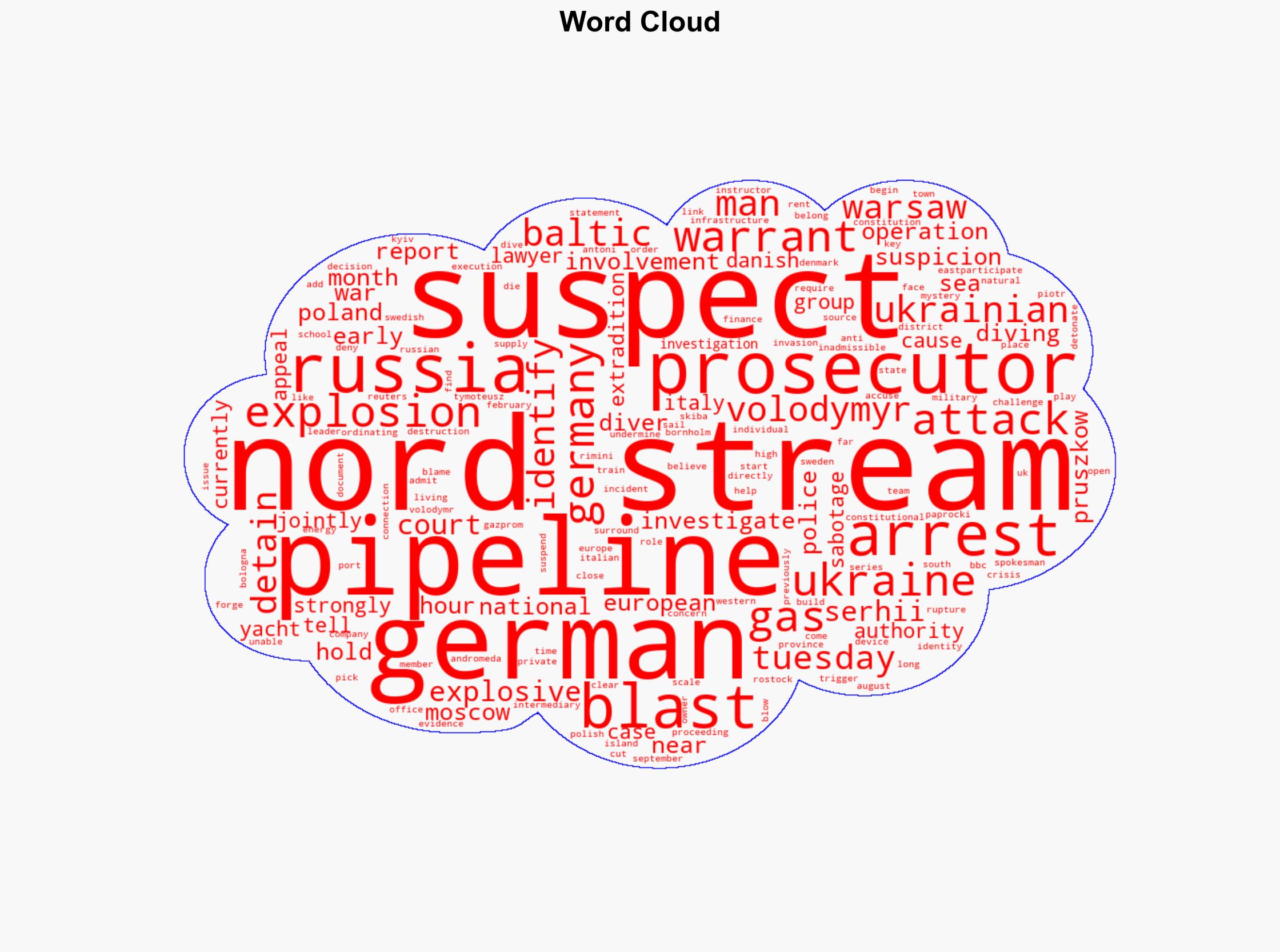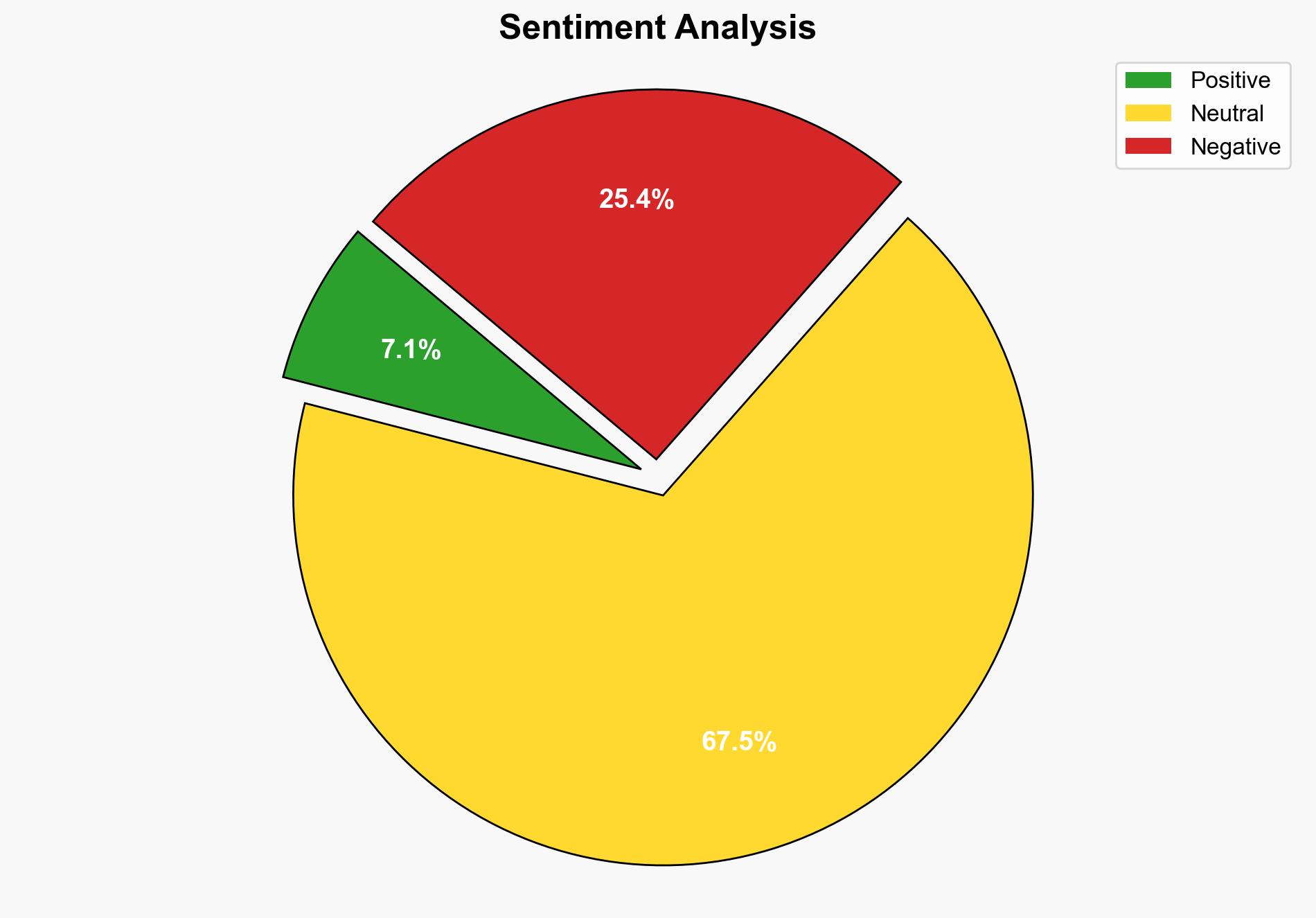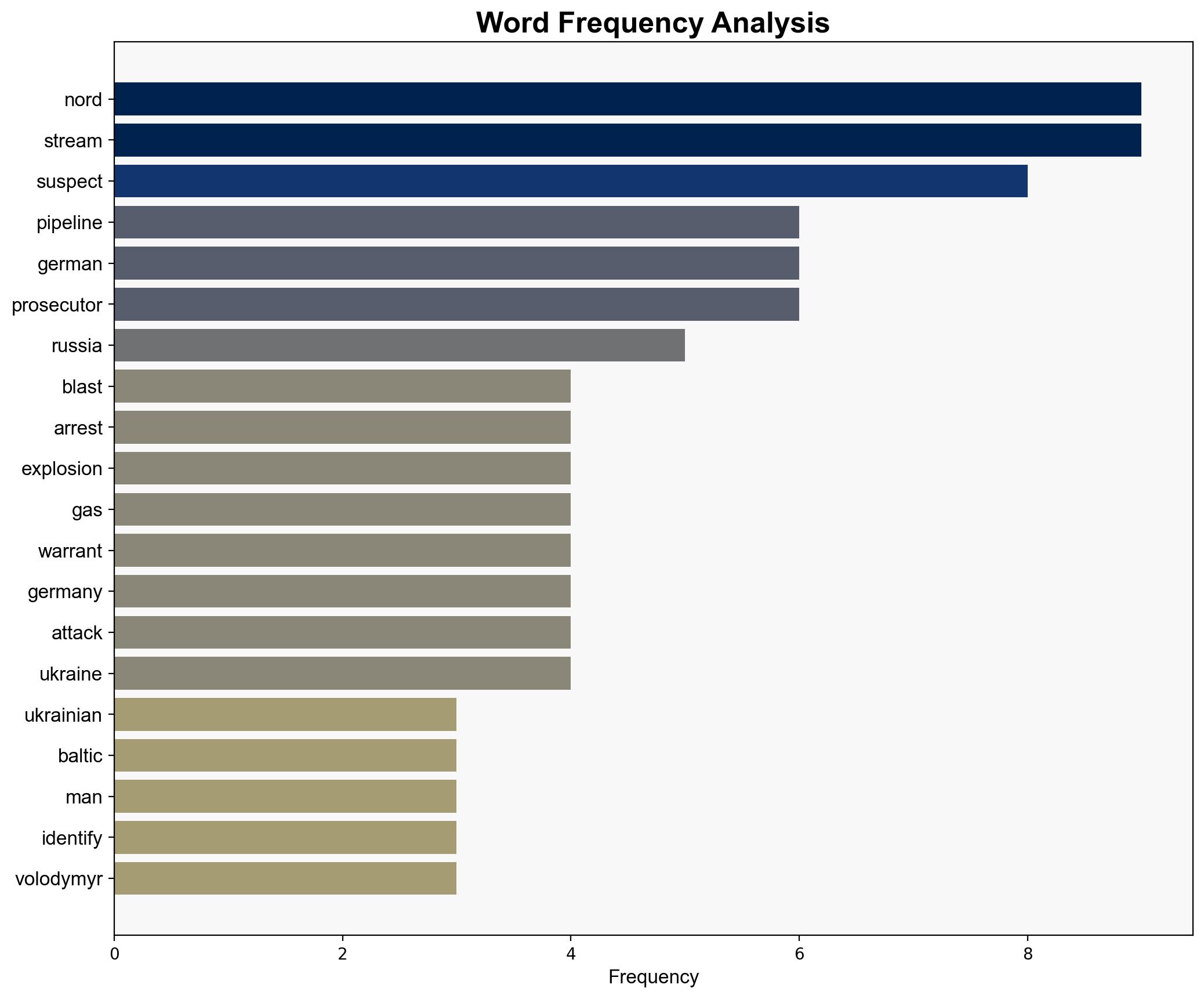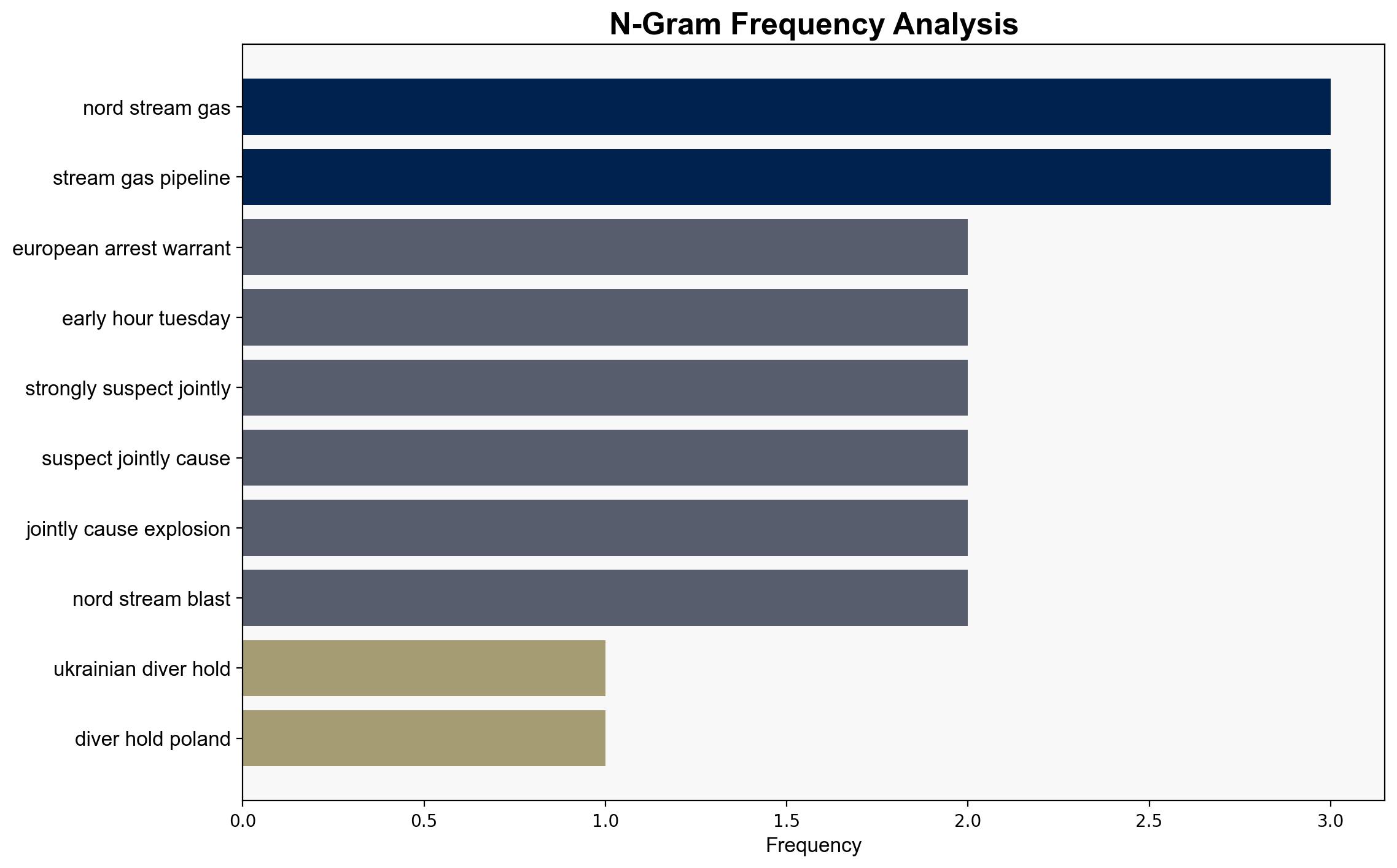Ukrainian wanted over Nord Stream pipeline blasts arrested in Poland – BBC News
Published on: 2025-09-30
Intelligence Report: Ukrainian wanted over Nord Stream pipeline blasts arrested in Poland – BBC News
1. BLUF (Bottom Line Up Front)
The arrest of a Ukrainian national in Poland, suspected of involvement in the Nord Stream pipeline explosions, presents two primary hypotheses: a non-state actor operation or a state-sponsored sabotage. The most supported hypothesis, based on current evidence, is that non-state actors, potentially with indirect state support, executed the attack. Confidence in this assessment is moderate due to incomplete information and ongoing investigations. Recommended action includes increased intelligence sharing among European nations and enhanced security protocols for critical infrastructure.
2. Competing Hypotheses
1. **Non-State Actor Involvement**: The individuals involved acted independently or as part of a non-state group, possibly motivated by financial gain or political ideology. The use of a yacht and forged documents suggests a well-planned operation but not necessarily state-backed.
2. **State-Sponsored Sabotage**: The operation was orchestrated by a state actor, using proxies to obscure involvement. This hypothesis aligns with the geopolitical tensions surrounding the Nord Stream pipeline and the broader energy crisis in Europe.
Structured Analytic Techniques (SATs) such as Analysis of Competing Hypotheses (ACH) indicate that the non-state actor hypothesis is slightly more plausible due to the lack of direct evidence linking a specific state to the operation.
3. Key Assumptions and Red Flags
– **Assumptions**: It is assumed that the arrested individuals had the technical capability to execute such an operation. Another assumption is that the operation’s complexity does not necessarily imply state sponsorship.
– **Red Flags**: The absence of clear evidence linking the suspects to a state actor is a significant red flag. Additionally, the reliance on open-source information and media reports may introduce bias.
– **Blind Spots**: Limited access to classified intelligence and potential misinformation campaigns could obscure the true nature of the operation.
4. Implications and Strategic Risks
The incident highlights vulnerabilities in European energy infrastructure and the potential for similar attacks to exacerbate geopolitical tensions. If state-sponsored, it could lead to increased sanctions and diplomatic confrontations. Non-state actor involvement suggests a growing threat from organized groups capable of sophisticated sabotage.
5. Recommendations and Outlook
- Enhance surveillance and protection measures for critical infrastructure, particularly energy pipelines.
- Foster international cooperation in intelligence sharing to better identify and mitigate threats.
- Scenario Projections:
- Best Case: Improved security measures prevent future attacks, and diplomatic efforts reduce tensions.
- Worst Case: Escalation of state-sponsored attacks leads to broader conflict and energy shortages.
- Most Likely: Continued investigations reveal non-state actor involvement, leading to targeted counter-terrorism operations.
6. Key Individuals and Entities
– Volodymyr: Ukrainian national, trained diver, detained in Poland.
– Serhii: Another suspect, detained in Italy, accused of coordinating the operation.
– Gazprom: Owner of the Nord Stream pipeline, potentially impacted by the sabotage.
7. Thematic Tags
national security threats, cybersecurity, counter-terrorism, regional focus





